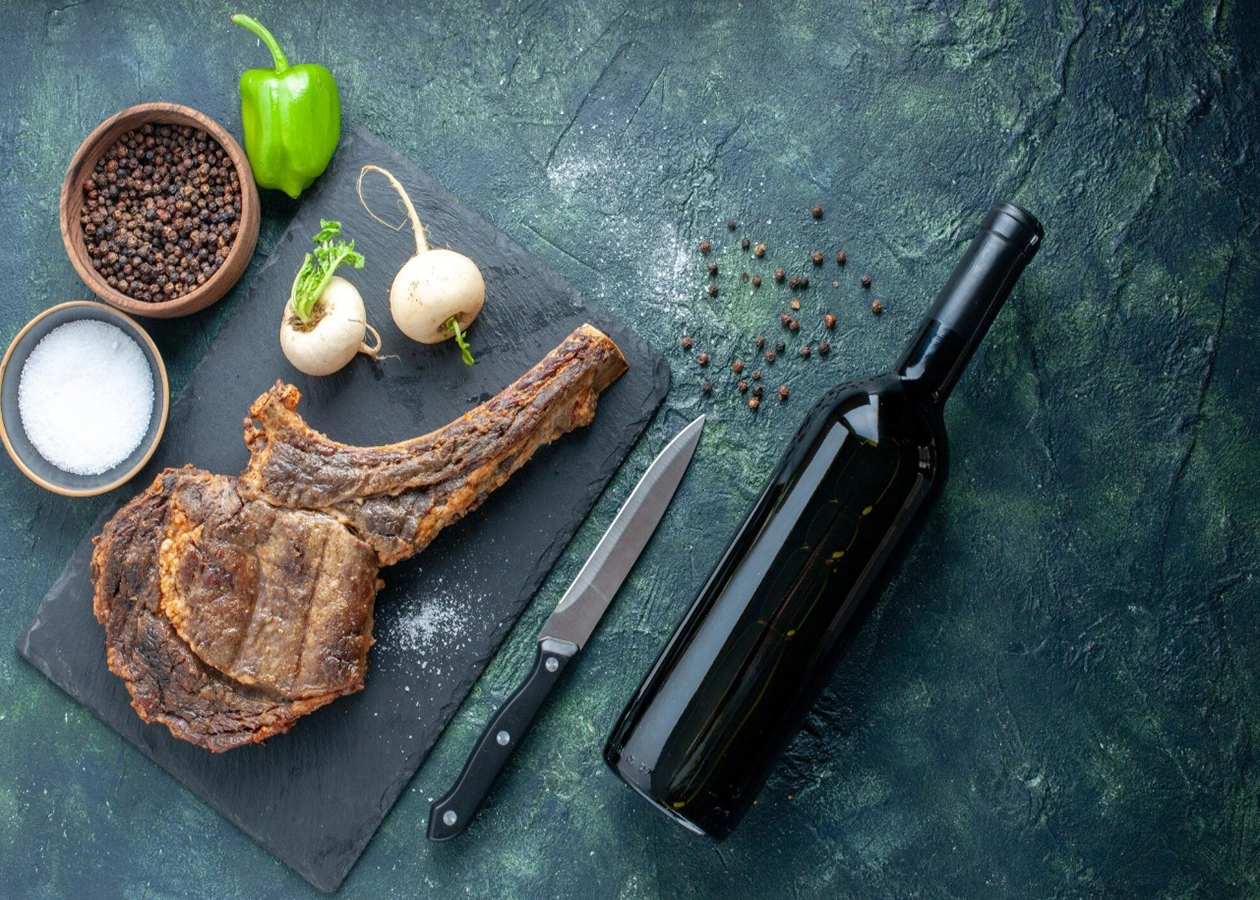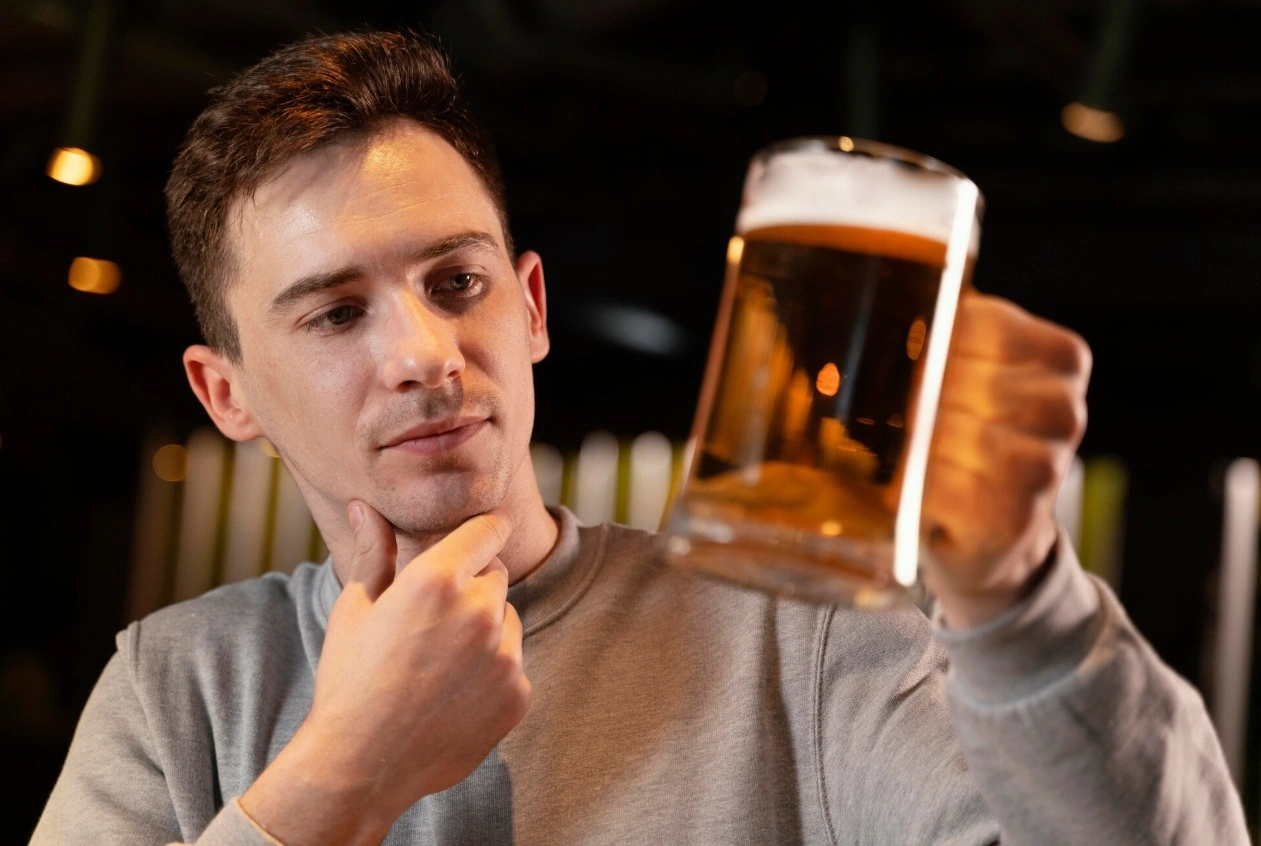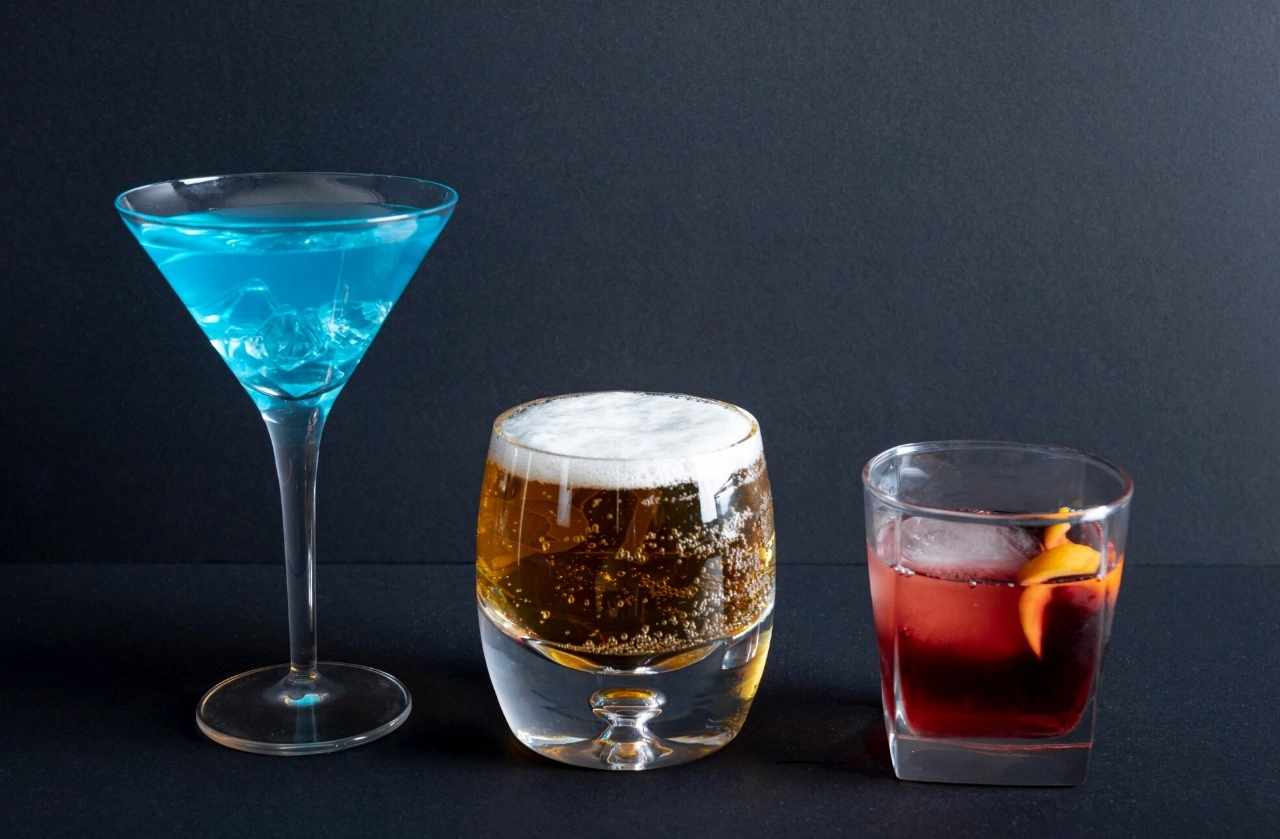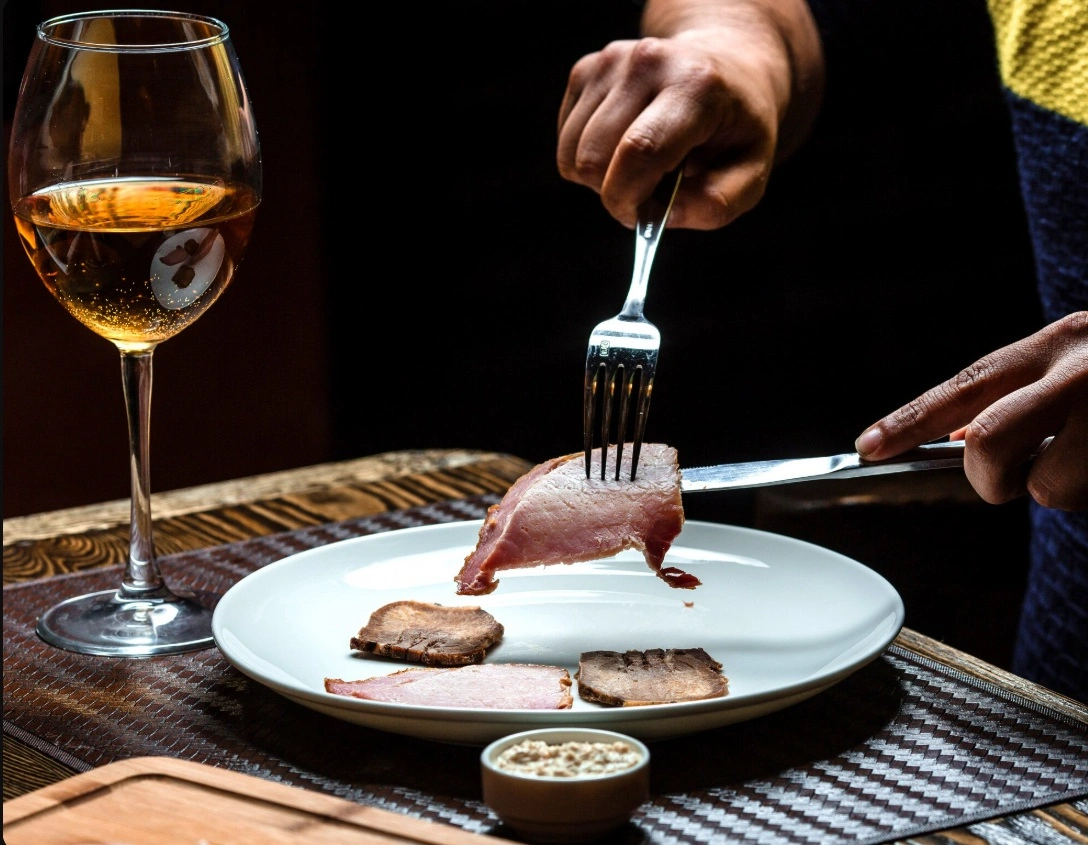
Alcohol is part of social life or a way to relax for many people. But if you are on a low-carb diet like Carnivore, you need to consider important points. Alcohol is a toxin and high in calories, but does it mean it can negatively affect your Carnivore results? The answer depends on your goals, metabolic flexibility, and some other factors. So, let’s find out if you can drink alcohol on Carnivore Diet or not, or whether some drinks can be considered Carnivore-friendly.
Technically, alcohol is not Carnivore-friendly because, first, it is not an animal-based food, and second, because it contains carbohydrates.
However, since the Primal Diet, and Carnivore as its last stage, is all about progress, not perfection, some people may still drink alcohol at the beginning of a Carnivore lifestyle. Also, many people like to drink occasionally, even on a Carnivore Diet.
Let’s find out why alcohol can be a problem on a Carnivore Diet and what we can do about it.
The most important thing you need to consider about drinking alcohol on a Carnivore Diet is that alcohol directly affects how your metabolic functions in different ways.
Learn More: 15 Sugar Free Drinks on Carnivore Diet + 20 Drinks to Avoid
When you drink, the liver processes and breaks down alcohol before anything else, such as burning fat and protein, meaning that fat-burning and ketone production will pause until the alcohol is cleared [1] [2].
This pause effect can last several hours, during which your body is less efficient at burning fat and making ketones.
This means that consuming alcohol can slow progress in weight loss, energy levels, and adapting to a low-carb or zero-carb lifestyle [3].
On top of that, alcohol is dehydrating and inflammatory, and can worsen sleep quality. These three points are very important for reaching health results on a Carnivore Diet [4] [5].
People on low-carb or zero-carb diets can also feel more sensitive to alcohol, getting tipsy faster and experiencing stronger hangovers. That can be because glycogen stores are depleted, and alcohol hits harder in the absence of carbohydrates [6].
Learn More: Female Carnivore Diet: 30-Day Meal Plan, Results, & Recipes
Alcohol can also increase cravings and lower inhibition. Many people like to consume high-carb foods after drinking, which can make it harder for you to stick to the Carnivore Diet. Even if you resist, alcohol still stresses the liver and gut, increasing inflammation markers [7].
Finally, alcohol can worsen nutrient absorption and recovery. Since you eliminate many food sources on a zero-carb Carnivore, every nutrient counts, so you should avoid anything that interferes with digestion or sleep [8] [9] [10].
Over time, frequent drinking can negatively affect or even counteract many of the health benefits people seek from a Carnivore Diet.
That being said, having an alcoholic drink once in a while doesn’t necessarily ruin your diet. If your goals are weight loss or healing by eliminating unnecessary foods, alcohol will interfere.
But if your goal is social flexibility and sustainability, limited alcohol in the form of low-carb spirits from time to time can be acceptable. Also, not all alcoholic drinks are the same.
Learn More: Lowest Carb Nuts: Best Nuts for Keto and The Worst Keto Nuts

The good thing about alcoholic beverages is that they contain varying levels of sugar (carbohydrates). Some are nearly carb-free, while others are loaded with sugars and grains that are nowhere near Carnivore-friendly.
So, if you want to drink alcohol on a Carnivore Diet, you need to know the best and worst options.
On a Carnivore Diet, alcoholic drinks with zero or low levels of carbohydrates are considered the best. Drinks such as:
Learn More: Alcohol on Carnivore Diet: The Best and Worst Beverages
The worst drinks on a Carnivore Diet are those with high levels of sugar or carbohydrates. The most common examples are:
The following table compares the levels of carbohydrates and calories in different alcoholic beverages.
So, as the table above shows, if you choose to drink alcohol on the Carnivore Diet, choose distilled spirits or very dry wines, and always avoid high-sugar drinks.
Even with low-sugar drinks, it is best to drink occasionally because alcohol is generally high in calories. But how much alcohol is too much?
Learn More: 20 Best Zero-Calorie Drinks: Are They Good for Weight Loss?

Since alcohol affects Carnivore dieters more strongly, moderation is even more important than on other diets. There is no universal safe amount of alcohol for everyone, but guidelines can help:
Anyhow, it is important to drink occasionally and in moderation because:
So, think of alcohol as a sometimes hobby, not a daily drink, because alcohol can have worse effects on Carnivores than on people on other diets.
Learn More: Can You Drink Milk on Carnivore Diet? What Are Pros & Cons
One of the surprising effects of the Carnivore Diet is that people tend to feel the effects of alcohol faster.
Since you have minimized or decreased carbohydrates, blood sugar doesn’t buffer alcohol’s effects, and glycogen stores are not available for quick recovery. This means intoxication comes quicker, and hangovers can feel stronger.
In the Carnivore Diet, the liver is already heavily busy with gluconeogenesis (producing glucose from non-carbohydrate sources like amino acids) and ketone production.
When you consume alcohol, those processes pause until alcohol is cleared. This makes fat-burning less efficient for hours after drinking.
Research on ketogenic diets shows similar patterns. People in ketosis metabolize alcohol differently, usually with more effects at lower doses. This means even a single drink could feel like two or three compared to a high-carb diet.
Learn More: Can I Eat Cheese on Carnivore Diet? The Best & Worst Cheese
If you do choose to drink alcohol while on a Carnivore Diet, consider the strategies below to reduce its negative impact:
Learn More: Carnivore Diet Grocery List Based on Diet Variations & Goals

For some, alcohol is part of celebration, relaxation, or connection with friends. Drinking alcoholic beverages occasionally may make the Carnivore Diet more sustainable for these individuals in the long run.
Strict elimination can feel isolating, and moderate drinking may make it easier for certain individuals to stick to the low-carb lifestyle.
But the trade-off is slower progress in fat loss, energy, and healing. Alcohol compromises sleep, gut health, and inflammation, which are among the main goals of the Carnivore Diet.
So, to reach these goals or hit similar targets, like autoimmune healing, you should avoid alcohol entirely.
Learn More: Ray Peat Diet: Everything You Should Know
Alcohol and the Carnivore Diet don’t mix perfectly, but they don’t have to be mutually exclusive. If your priority is rapid healing, you’d better avoid alcohol.
But if you are looking for sustainability and balance, occasional low-carb drinks like spirits or dry wine can fit into your lifestyle, as long as you keep moderation, hydration, and recovery in mind.
All in all, alcohol is a personal choice. Knowing the risks, trade-offs, and lowest-carb beverages allows you to enjoy it without sabotaging your progress.
Learn More: Carnivore Diet Cloud Bread Recipe: Fluffy and Zero-Carb
Let’s find answers to the most frequently asked questions about alcohol on Carnivore Diet.
Yes, it temporarily stops ketone production because the liver should metabolize alcohol first. However, once processed, many people return to ketosis quickly, especially if using zero-carb alcohol.
Distilled spirits, like vodka, gin, whiskey, tequila, and rum, are the best choices. Dry wines and brut champagne are okay in small amounts.
No, beer is made from grains and contains 12-20g of carbohydrates per serving, so it is not Carnivore-friendly.
Occasional drinking won’t destroy your progress, but frequent alcohol use can stall fat loss, worsen inflammation, and disrupt sleep.
Yes, because of reduced glycogen stores, lower carb intake, and faster alcohol absorption.
It is best to avoid alcohol for the first 30-60 days of the Carnivore Diet to allow your body to adapt. After adaptation, you may try small amounts.
Most contain added sugars and carbohydrates, so they are not allowed on a zero-carb Carnivore. You can use sparkling water or soda water with lime instead.